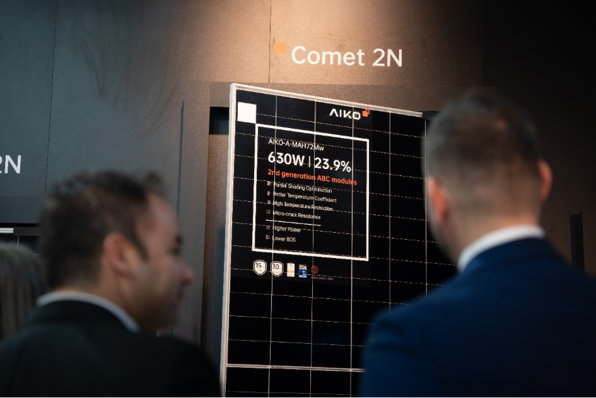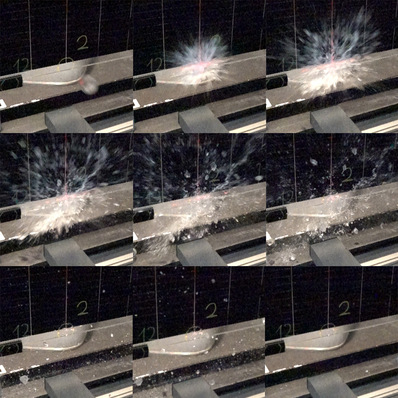Q Cells confirms today that it has become the first solar module manufacturer in the industry to successfully complete and pass a stringent new module testing certification program from TÜV Rheinland. The Quality Controlled PV testing standard has been developed by TÜV Rheinland in order to raise the bar in terms of monitoring, testing and recognizing solar module quality.
Quality Controlled PV certification as company standard
For Q Cells, Quality Controlled PV will become the company’s official certification standard, beginning with its latest range of Q.PEAK DUO-G9+ solar modules. The company has adopted the TÜV Rheinland Quality Controlled PV certification in order to strengthen its position as the leading quality provider in the PV industry, backed by a testing scheme that is not only the most extensive and stringent available to date, but is also the only certification in the entire industry to involve independent and random onsite testing from running production, as well as regular material testing.
Comprehensively raising the bar on solar module quality
Q Cells was able to become the first solar module manufacturer to pass the new independent Quality Controlled PV testing standard from TÜV Rheinland thanks to its committed efforts to support TÜV Rheinland in developing a new certification process that is beneficial for the entire solar industry, the company announced. Q Cells invited TÜV Rheinland to work closely with its quality management experts at Europe’s largest solar testing facility, at Q Cells’ Technology and R&D Headquarters in Thalheim, Germany.
Did you miss that? Three formats are emerging as future photovoltaic wafer sizes
The result is an industry-leading approach to comprehensively raising the bar on module quality, performance and durability. This collaborative effort paired the unique experience of Q Cells’ quality management and R&D staff with TÜV Rheinland’s industry experts, and the result is a completely independent testing and certification program from TÜV Rheinland that is the only program on the market to continuously monitor product quality and durability in mass production.
Additional durability tests for solar modules
The three-component Quality Controlled PV certification process introduces a completely new set of uniquely stringent testing standards. Component one is the initial qualification test, which assesses long-term reliability by applying testing durations that are up to three-times longer than standard IEC and UL tests (including 2,000 hours damp heat testing, which is twice that of the IEC/UL, and 600 thermal cycles – three times that of the IEC). Augmenting these extended tests are additional durability tests that cover failure modes not included in standard IEC certification, such as weathering durability of backsheets, and long-term stability of solder bonds.
Onsite testing at the module manufacturing facilities
Further testing measures include an extended stress test for mechanical load, PID (potential induced degradation), LeTID (light and elevated temperature induced degradation) and UV resistance of the backsheet. Component two of the Quality Controlled PV testing process is what really sets it apart from all previous standards. Here, independent TÜV Rheinland representatives are located onsite at module manufacturing facilities to select samples for testing from the running production. This component ensures that a module manufacturer’s mass production processes are continuously and thoroughly tested, with random sampling at regular intervals conducted by the fully independent TÜV Rheinland personnel.
Regular monitoring of the materials and suppliers
The third and final component is the regular monitoring of the materials and suppliers used by manufacturers. Here, TÜV Rheinland experts monitor supplier audits, and material footprint analysis of materials regularly used. Continuous monitoring of these materials during mass production, on both a monthly and a more regular basis, assesses if the structure and composition of the materials used remains of consistently high quality. TÜV Rheinland and Q Cells are convinced that this material inspection component shall become standardized in the PV industry. Having consulted Q Cells as one from the industry advisory board in creating the new Quality Controlled PV standard, the TÜV Rheinland certification process takes into account recent failure modes in solar, and has thus been designed to set a new standard of quality parameters for the entire industry.
Quality Controlled PV certification program regularly updated
Vitally, the Quality Controlled PV program will be dynamic and regularly updated as and when new testing standards are approved – thus ensuring that not only does the program set the bar for quality, it continues to raise it, too. Lukas Jakisch, Business Field Manager for PV modules at TÜV Rheinland, said: “TÜV Rheinland has defined a catalogue of tests that establish additional qualities that go beyond the standard level of approval and safety qualification. TÜV Rheinland’s surveillance of a manufacturer’s production process – where we perform tests on samples taken at random every month – seeks to identify a consistent level of oversight, with a special focus on reliability and material properties as well as supplier change control.”
Close collaboration with TÜV Rheinland
Nicole Nelles, Head of Q Cells Global Quality Management, added: “Q Cells is very pleased to have become the first solar module manufacturer to receive TÜV Rheinland’s Quality Controlled PV certification of quality. Being the first mover in this program, Q Cells has worked very closely with TÜV Rheinland to not only set the testing standards ever higher, but also shape completely new testing schemes that reflect the industry’s experience in order to exclude known failure modes. The independent TÜV Rheinland representative’s continuous surveillance, as well as the regular material inspections, turn this program into something unique in the industry.
Read more: Q Cells to invest heavily into its German R&D headquarters over next three years
“However, Q Cells will not rest here,” Nelles added. “We continue to conduct and develop a number of additional test programs in parallel – each designed to deliver and ensure improvements in solar module quality. The aim is to integrate them into the Quality Controlled PV program so that it is continuously evolving with the times. We have set the industry standard, and we want to maintain that standard moving forward. (hcn)







